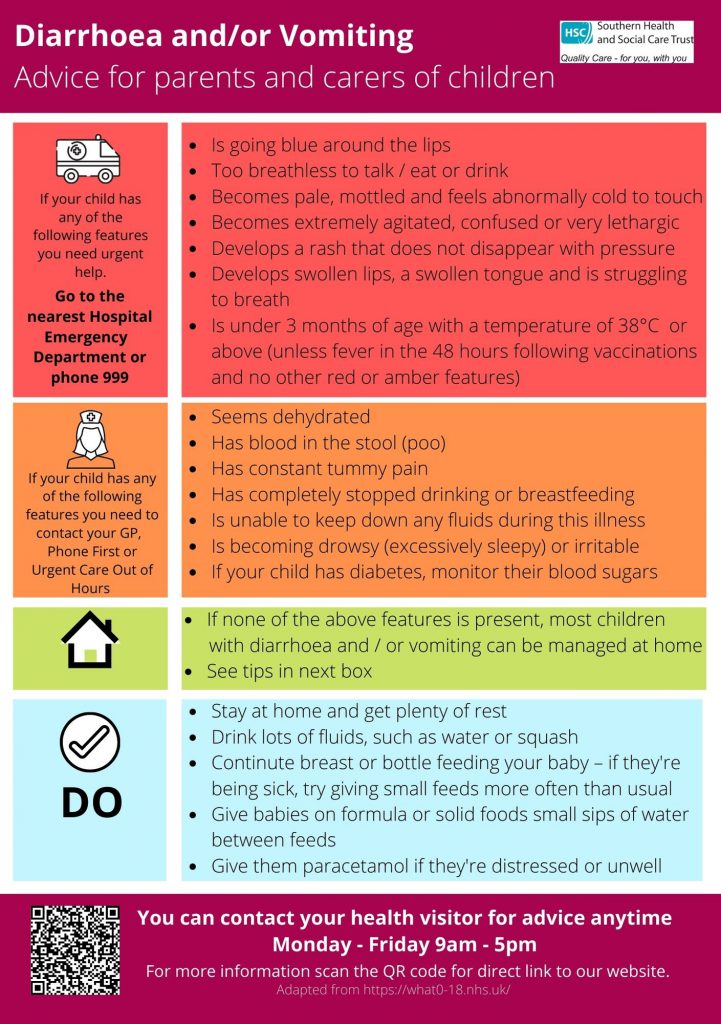 Click here to download leaflet
Click here to download leaflet
Useful links:
-
How can I look after my child?
- Encourage your child to drink plenty of fluids – little and often. Water is not enough and ideally oral rehydration solution (ORS) is best. ORS can be purchased over the counter at large supermarkets and pharmacies and can help prevent dehydration from occurring.
- Mixing the contents of the ORS sachet in dilute squash (not “sugar-free” squash) instead of water may improve the taste.
- Continue to offer your child their usual feeds, including breast and other milk feeds.
- Do not worry if your child is not interested in solid food. If they are hungry, offer them plain food such as biscuits, bread, pasta or rice. It is advisable not to give them fizzy drinks as this can make diarrhoea worse.
- Your child may have stomach cramps; if simple painkillers such as paracetamol and ibuprofen do not help please seek further advice.
- Most children with diarrhoea and / or vomiting get better very quickly, but some children can get worse. You need to regularly check your child and follow the advice given to you by your healthcare professional and / or as listed on this sheet
-
About Gastroenteritis
- Tummy bugs are extremely common in young children and are almost always caused by a virus.
- They are easily spread, resulting in outbreaks in nurseries and schools.
- Diarrhoea can often last between 5 – 7 days and stops within 2 weeks. Vomiting usually stops within 3 days. If your child continues to be ill for longer than these periods, seek advice.
- Severe diarrhoea and / or vomiting can lead to dehydration, which is when the body does not have enough water or the right balance of salts to carry out its normal functions. If the dehydration becomes severe it can be dangerous.
- Children at increased risk of dehydration include:
- young babies under 1 year old (and especially the under 6 months)
- babies born at a low birth weight and those who have stopped drinking or breastfeeding during the illness
- children with faltering growth
-
After Care
Once your child is rehydrated and no longer vomiting:
- continue breastfeeding, other milk feeds and fluid intake – give full strength milk straight away.
- reintroduce the child’s usual food.
- avoid giving fizzy drinks until the diarrhoea has stopped
- if dehydration recurs, start giving ORS again
- anti-diarrhoeal medicines (also called antimotility drugs) should not be given to children
- your child cannot return to nursery / school until 48 hours after the last episode of diarrhoea and / or vomiting
-
Preventing the spread of diarrhoea / vomiting
You and/or your child should wash your hands with soap (liquid if possible) in warm running water and then dry them carefully:
- After going to the toilet
- After changing nappies
- Before touching food
Your child should not:
- Share his or her towels with anyone
- Go to school or any other childcare facility until 48 hours after the last episode of diarrhoea and / or vomiting
- Swim in swimming pools until 2 weeks after the diarrhoea has stopped




